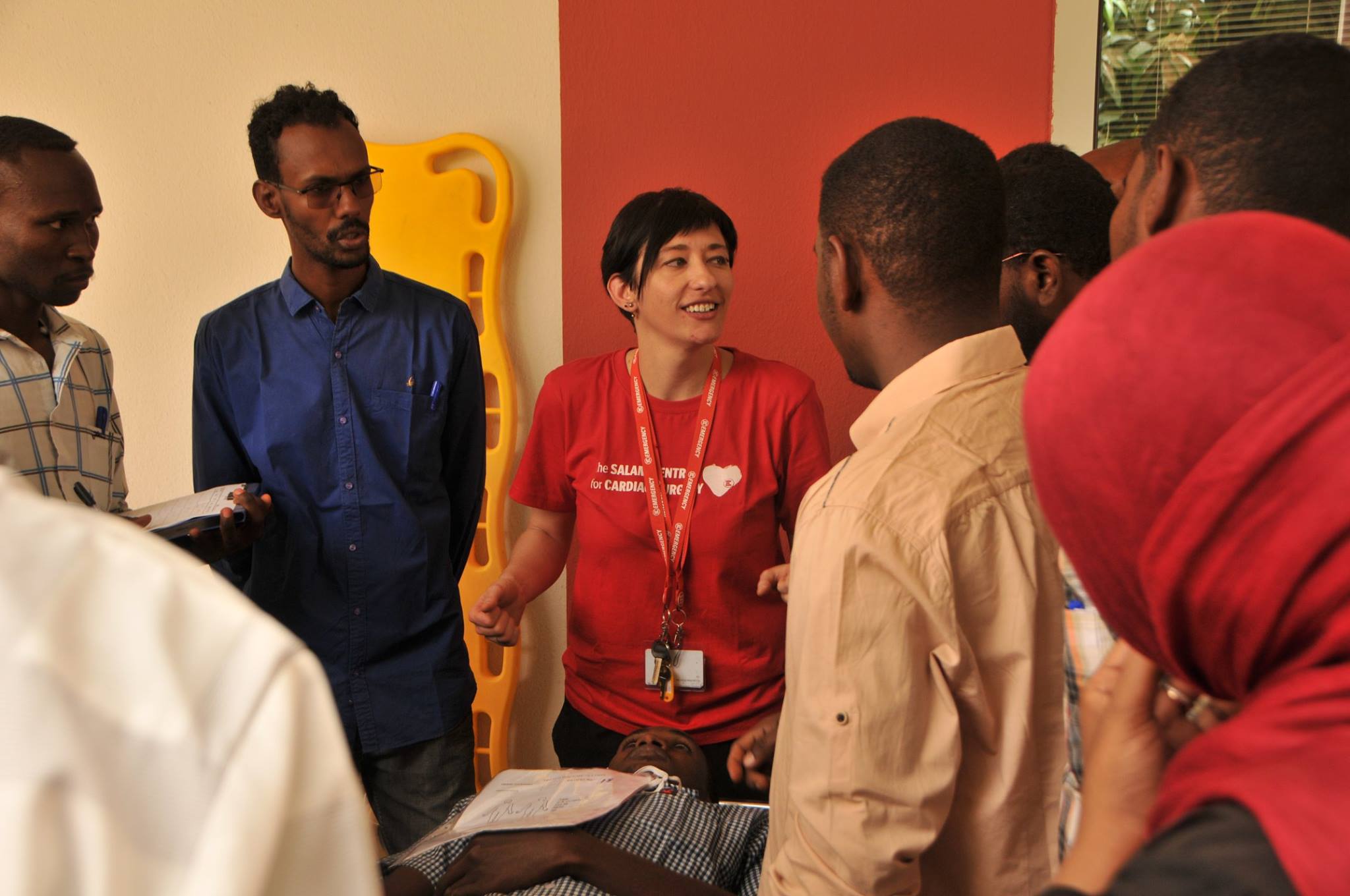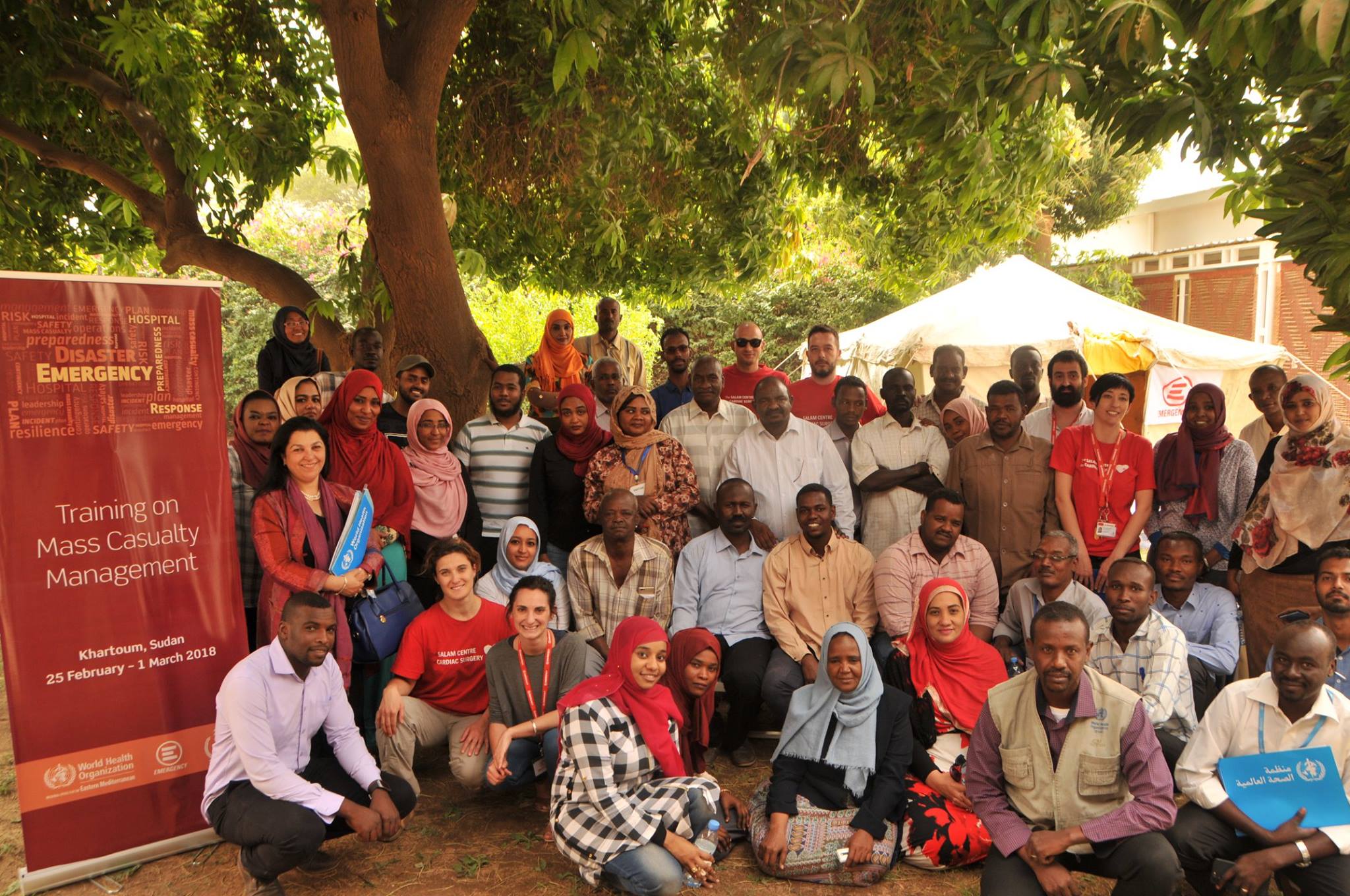 Trainees receive instruction from EMERGENCY staff (Photo: Simon van Woerden/WHO Sudan).
Trainees receive instruction from EMERGENCY staff (Photo: Simon van Woerden/WHO Sudan).
From 25 February to 1 March 2018, a total of 30 workshop participants learned about the finer details of dealing with mass casualty incidents at the Salam Centre for Cardiac Surgery - such as large traffic accidents, explosions, or anything else that overwhelms the need of available medical services.
With support from WHO, trainers from the Italian NGO “EMERGENCY” gave lectures, exercises, and on the last day organized a simulation giving participants a hands-on experience using all their new knowledge and skills. Participants learned about planning, preparedness, triage, quick life-saving techniques, and more.

The training offered invaluable new insights and learning, according to several medical graduates who joined. “Since disasters are not planned or expected, it’s difficult to practice in those circumstances” said Tawassel Mahmoud Ali (33), an Emergency Medicine Registrar at Sudan’s Medical Specialization Board.
The fact that the EMERGENCY trainers all have real-life experience working in mass casualty at medical emergency health facility settings, added enormous value as well. Yassin Omer (25), also a Registrar, noted: “You can see it in subtle details, like the advice to always use white bed sheets so you can spot any bleeding immediately.”
Finally, the trainers’ quality as teachers made the week a resounding success. For the participants, their final exam is another starting point however. Ali: “I would love to bring my new skills and expertise outside of Khartoum, to train colleagues in the states. I’m not sure if it’s possible, but we’re definitely going to talk about it more.”


